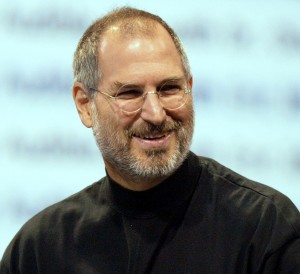
Since Steve Jobs’ resignation as Apple CEO in August, many of the basic facts of his disease have been widely written about. Jobs had a rare form of pancreatic cancer, Pancreatic Neuroendocrine Tumors. The Wall Street Journal and The Washington Post both feature solid pieces with additional detail about this disease.
The American Cancer Society’s five-year survival rates for the more frequently diagnosed type of Pancreatic Cancer are bleak. But for those afflicted with the rare type of this cancer Jobs had, survival rates are much higher.
For a moving obituary, the American Cancer Society’s Dr. Len Lichtenfeld had a surprising approach. He writes about Steve Jobs as a survivor.
…his greatness is amplified by what he accomplished under the most difficult of circumstances. For here was a man who had an uncommon cancer that recurred and required a liver transplant. Here was a man who was failing in his health, yet had the fortitude to face every day as a new challenge, to do what he wanted to do, to accomplish successes that had never been accomplished before. Here was a man who embodied the drive and the spirit that so many cancer survivors possess every day of their lives, even when facing the ultimate moment as Steve Jobs faced today.
Here was a man living, really living, with cancer. But along with Jobs’ drive came a fabled stubborn streak. When his cancer was diagnosed in 2003, he initially refused the recommended surgery. Fortune magazine reported in 2008 that those closest to him were concerned.
By the standards of medical science, it was an open-and-shut case: There was no serious alternative to surgery. ‘Surgery is the only treatment modality that can result in cure,’ Dr. Jeffrey Norton, chief of surgical oncology at Stanford, wrote in a 2006 medical journal article about this kind of pancreatic cancer.
On Wednesday, The Daily Beast built on the Fortune report in a lengthy critique of Jobs’ personal treatment decisions. In her post, Sharon Begley includes everything anyone would want to know about pancreatic neuroendocrine tumor, but also makes the case that Jobs’ insistence on directing his own treatment could have worsened his condition and perhaps even shortened his life. Again from the Fortune piece:
A Buddhist and vegetarian, the Apple CEO was skeptical of mainstream medicine. Jobs decided to employ alternative methods to treat his pancreatic cancer, hoping to avoid the operation through a special diet – a course of action that hasn’t been disclosed until now.
For nine months Jobs pursued this approach, as Apple’s board of directors and executive team secretly agonized over the situation – and whether the company needed to disclose anything about its CEO’s health to investors.
After the initial surgery, Jobs lived in apparent good health for several years, then in 2009 he received a liver transplant. Begley writes, “… removing the liver because it had become riddled with tumors that originated elsewhere [i.e. the pancreas] is rare. For one thing, liver metastases probably meant the cancer is elsewhere, too, such as in the bones or brain. Swapping out a cancer-ridden liver for a new one may therefore buy some time, but not much.” Begley further states the transplant itself could have been “counter-productive.” The regimen of immune-suppressing drugs needed to prevent rejection of a transplanted organ may hinder the body’s ability to fight the cancer.
